MOVE Summit India opens, PM Modi calls mobility sector a key economy driver
NITI Aayog’s flagship event, MOVE Summit India, opened today in the presence of Prime Minister Narendra Modi and some of the top leaders of the automotive industry, from India and overseas.
NITI Aayog’s flagship event, MOVE Summit India, opened today at Vigyan Bhawan, New Delhi in the presence of Prime Minister Narendra Modi and some of the top leaders of the automotive industry, from India and overseas, both OEMs and suppliers.
The who's who of the automotive world included Suzuki Motor Corp chairman Osamu Suzuki; Toyota Motor Corp chairman Takeshi Uchiyamada; Chung Euisun, vice-chairman, Hyundai Motor Corp; Anand Mahindra, executive chairman, Mahindra & Mahindra; Guenter Butschek, CEO, Tata Motors; Volkman Denner, CEO, Bosch; Ulrich Speisshoffer, CEO, ABB; and Marcy Klevorn, president - Smart Mobility, Ford Motor Co, among others.
While the industry is gearing up to comply with the BS VI emission norms from April 2020, the pace of investments and R&D in alternate fuel technologies now appear to be catching momentum across the automotive industry segments. However, there is much curiosity around the composition of the automotive market about 10 years from now in India with respect to the penetration of electric and hybrid vehicles along with their internal combustion engine counterparts plying on the roads.
To this backdrop, NITI Aayog, the government of India’s think-tank for boosting businesses across sectors including automotive, has organised the two-day Move Summit India.
According to CEO Amitabh Kant, who opened the event today, NITI Aayog has worked with all the states across the country and several other stakeholders including the ministries, industry experts and the engineering institutes to deliberate on the different approaches that can be embraced by the (auto) industry with a larger motive of cutting down on the national carbon footprint of India.
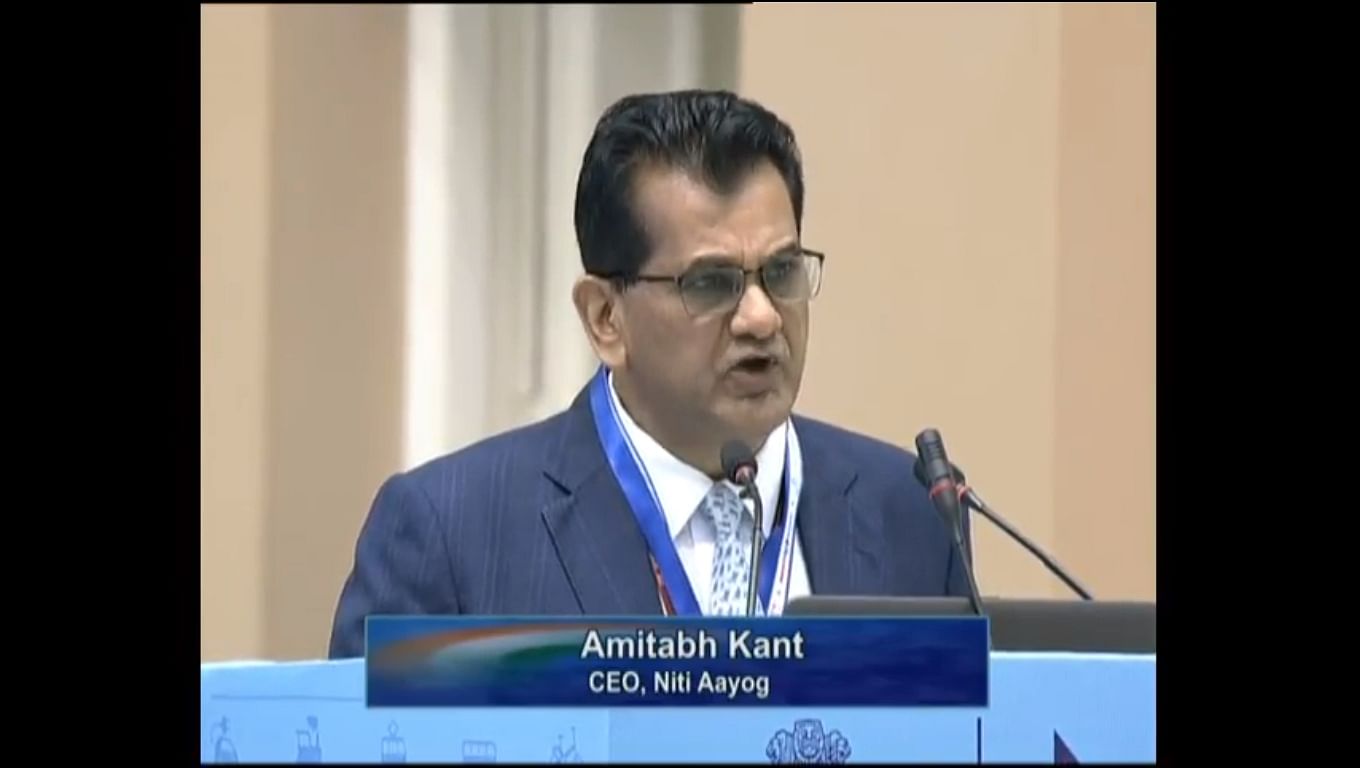
“We have been holding in-depth discussions around a host of topics including skill sets, job creation, connectivity in vehicles, alternate fuels, battery ergonomics, power storage, pan-India infrastructure and other areas for the last few months. We will be releasing a few papers on these subjects suggesting a way forward,” he said.
Speaking at the event today, Dr Rajiv Kumar, vice-chairperson at NITI Aayog, added, “We have received overwhelming response from start-ups and young entrepreneurs who are willing to play important roles as we look at the future of mobility in India. We received about 30,000 entries in the MOVE Hackathon with participation from about 5,000 teams. A 22-state action plan will be presented tomorrow. The objective of this global summit is to chart out a new mobility roadmap for the country aimed at improving the ease of living and creating employment for all. We forecast good incremental growth in the automotive industry over the next decade and this will increasingly come from India. A large portion of this growth in the demand of the new age vehicles will include shared and connected mobility.”
CEOs to the fore
Present at the event today, Anand Mahindra, executive chairman, Mahindra & Mahindra said, “The world is dramatically embracing the ride sharing concept. The One Nation One Card is a commendable step and we can create digital solutions tapping the opportunities around the multi-modal transportation system.”
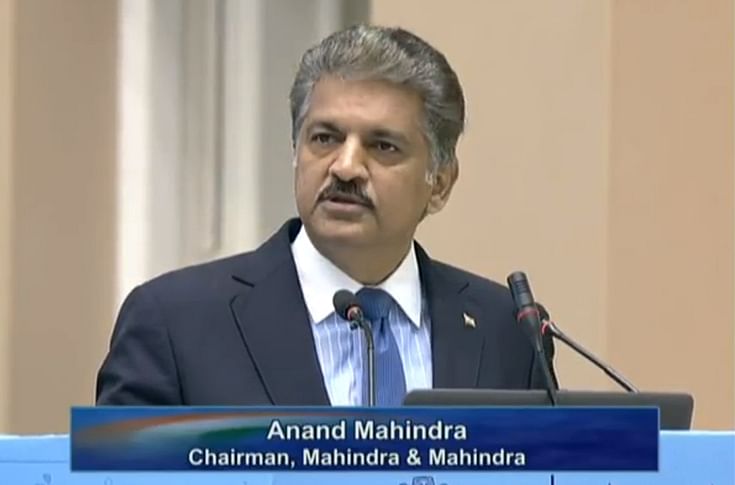
Hyundai Motor Company, which has put on display a battery of its zero emission vehicles at the ongoing Move Summit India, appreciated the government’s push for cleaner mobility technologies. Speaking at the event, Euisun Chung, vice-chairman of Hyundai Motor Company, said, “We are glad to participate in Move: The Global Mobility Summit and be a part of exchange of ideas to make the dream of future mobility transform into reality. Hyundai is already leading the future mobility solutions and is committed to realise India’s vision of shared, connected and zero emission mobility. I am confident that this Global Mobility Summit will herald a new era of smart and clean mobility in India.”
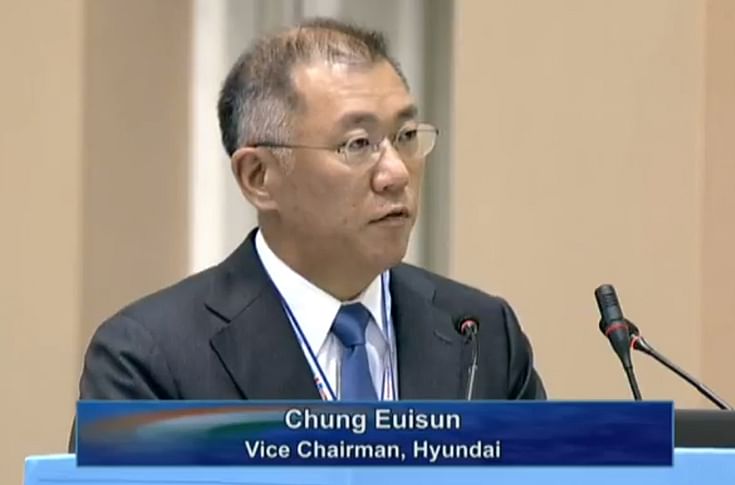
Chung reiterated Hyundai’s three-pillared approach around the mobility industry of the future. He called clean mobility, freedom in mobility and connected mobility as its three pillars that define his company’s stance globally.
“Under the first pillar of clean mobility, the electric vehicle is one of the most important components to achieving this mission. Hyundai is fully prepared to deliver every type of EV including hybrid electric vehicles (HEV), electric vehicles (EV), and fuel cell electric vehicles (FCEV). Under the second pillar, we aim to create an environment where everyone has unlimited access to safe and convenient transportation. The third pillar is about connected mobility. We are currently developing a connected car program to link an individual’s car with other cars, their office and even the wider urban environment, resulting in greater safety and convenience,” Chung said.
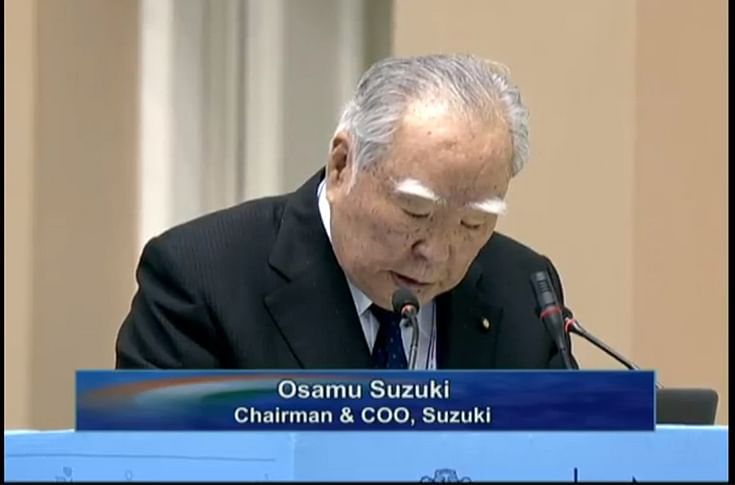
Complimenting the government on positioning India as a critical manufacturing hub globally, Suzuki Motor Corporation chairman Osamu Suzuki added that Suzuki Motor Corporation is proud to have realised the Make in India initiative. He announced that the company has decided to commence production of lithium ion battery at its Gujarat plant from 2020 and launch EVs under the cooperation with Toyota Motor Corp from the same year.
Making an important announcement, he said, “I am pleased to announce today that we will start the road tests of 50 EVs in India next month. This is as per the plan to develop them for Indian conditions.”
However, he also pointed that the EV penetration cannot be achieved without setting up the EV charging stations across the country India. Suzuki, one of the most respected corporate personalities globally, underlined the need to develop hybrid as well as CNG vehicles alongside electric vehicles, thus suggesting that a single technology will not help India achieve its plans around energy and carbon footprints.
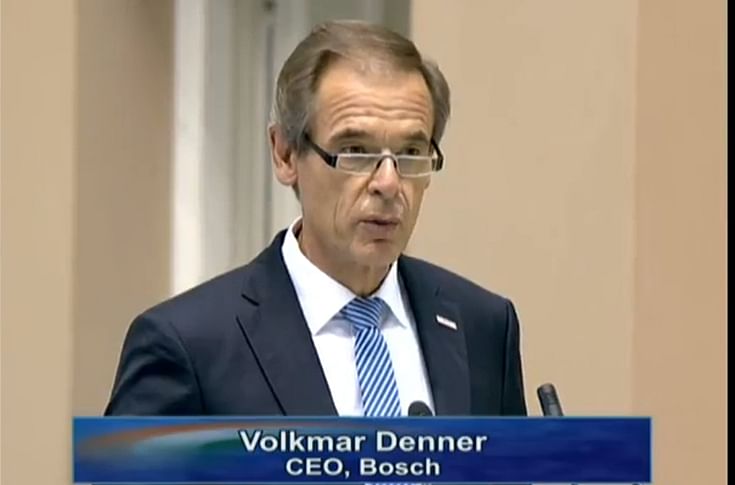
Backing the future of IC engines, Dr Volkmar Denner, chairman, Bosch Global said, “Our vision is an ICE engine with negligible emissions. We are under discussions with several key players to introduce tailor-made solutions for India. However there is no single solution. We must have a technology agnostic outlook to work on improving India’s energy security and efforts to cut down carbon emissions.”
Denner also mentioned about the relevance of safety in vehicles. “We have developed the world's smallest and lightest ABS for the two-wheeler market in India. This is developed in India, for India,” he said.
Denner expects that the electrification of vehicles can begin from two- and three-wheelers and can then subsequently move to the passenger vehicles. He, however, did mention that the electric vehicles will be one of the key mobility solutions of the future.
“A timeframe for these targets is also needed. We also need to ensure that the existing employment is not disrupted with these incoming technologies at play,” Denner stressed.
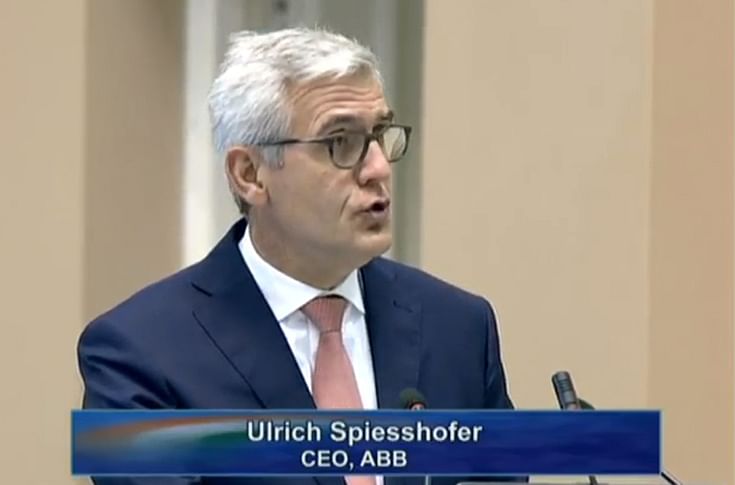
Ulrich Spiesshofer, president and CEO, ABB, said, “We commended the Indian government for its ambitious approach inspiring millions of Indians to drive electric vehicles and contribute in cutting down the national carbon footprint. Electric mobility is one of the changing forces of the world across all modes of transportation. We are launching the technology to fast charge the electric vehicles in India today. It can charge cars for drive upto 200 kms in under 8 minutes. We need affordable electric cars in India and it is fantastic to see how our partners are working on it. We are also glad to see the upcoming electric vehicles players in the 2W and 3W segments.”
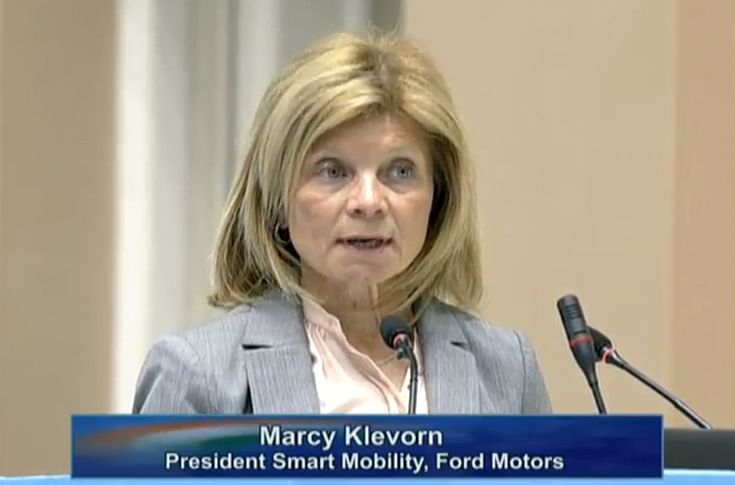
Speaking at the event, Marcy Klevorn, EVP and President of Mobility, Ford Motor Company said, “Personal mobility is under threat due to the increasing levels of pollution and traffic congestions. We appreciate the Indian government’s efforts of developing 100 smart cities in India. At Ford we realise that collected efforts are needed to achieve the objectives such as road congestion and others. Ford is working on deploying data in developing new urban mobility solutions. The autonomous vehicles will talk to the infrastructure such as the traffic signals on their own. The mobility challenges today cannot to treated in isolation. I urge the states and cities in India to work with Ford to solve the mobility challenges.”
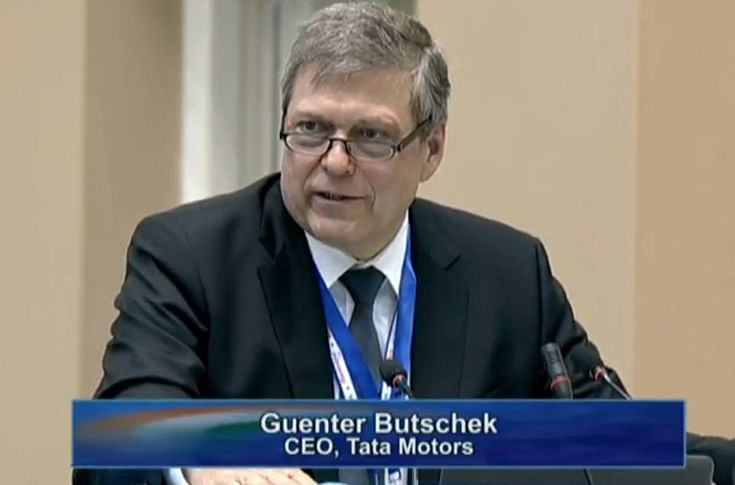
Emphasising on what he calls as the CESS approach, which signifies Connected, Electric, Shared and Safe vehicles, Guenter Butschek, MD and CEO, Tata Motors, pointed out the need to relook at the market strategies at play as he sees the next generation and the millennials taking centre stage as the prime customers.
Commenting on future opportunities, he added, “India is a shining star among the all global economies. The government has given a very clear direction via smart cities and Swachh Bharat initiatives. We are now going to have very stringent auto norms at par with the global standards. The auto industry has always been the engine of the economy. It is poised to become one of the largest in the world. This event (referring to the NITI Aayog Summit) shows that it is very important to pay attention to the IST, which is being inclusive, sustainable and transformative. We look foward to a framework around the same.”
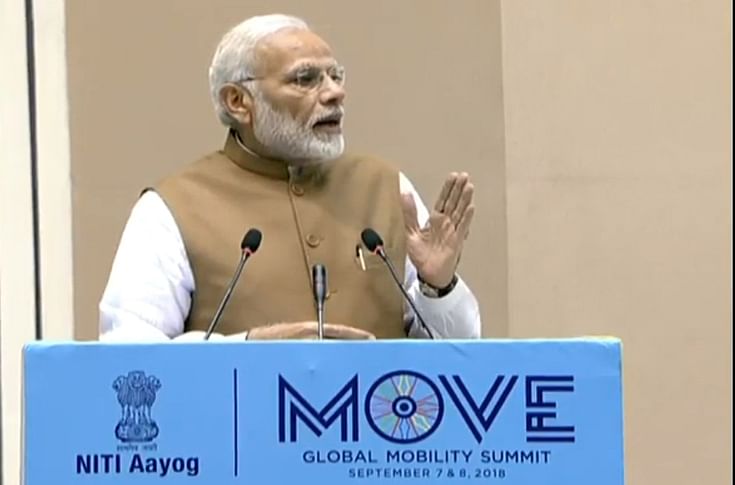
In an encouraging speech, appreciated by top industry leaders such as Anand Mahindra and others, Prime Minister Narendra Modi referred to the mobility sector as a key driver of the economy. He stressed on the need to tap the revolution in the mobility sector urging the nation to be the early mover globally.
“Mobility has been key to the progress of humanity. The world is now in the middle of new mobility revolution. It is, therefore, important to understand mobility as a wider construct. It is a key driver of the economy. Greater mobility can reduce the burden of transportation and thus can boost economic growth. It is central to urbanisation. It can create the next generation of jobs. Mobility is also the key element of ease of living. It occupies the minds of every person across the chores of the day-to-day life. Additionally, embracing new mobility technologies is critical to preserving our planet,” he stated.
Quoting that road transport accounts for about one-fifth of the total carbon emissions, PM Modi elaborated on how the mobility sector can improve the quality of life, reduce costs and expand the economic activities.
Also read: SIAM calls for long-term policy roadmap to enable smooth transition to future mobility
Industry captains urge suppliers to think global, invest in R&D, be agile in a disruptive era
RELATED ARTICLES
Cosmo First diversifies into paint protection film and ceramic coatings
The Aurangabad, Maharashtra-based packaging materials supplier is leveraging its competencies in plastic films and speci...
JSW MG Motor India confident of selling 1,000 M9 electric MPVs in first year
The 5.2-metre-long, seven-seater luxury electric MPV, which will be locally assembled at the Halol plant in Gujarat, wil...
Modern Automotives targets 25% CAGR in forged components by FY2031, diversifies into e-3Ws
The Tier-1 component supplier of forged components such as connecting rods, crankshafts, tie-rods, and fork bridges to l...






 07 Sep 2018
07 Sep 2018
 13707 Views
13707 Views





 Autocar Professional Bureau
Autocar Professional Bureau




